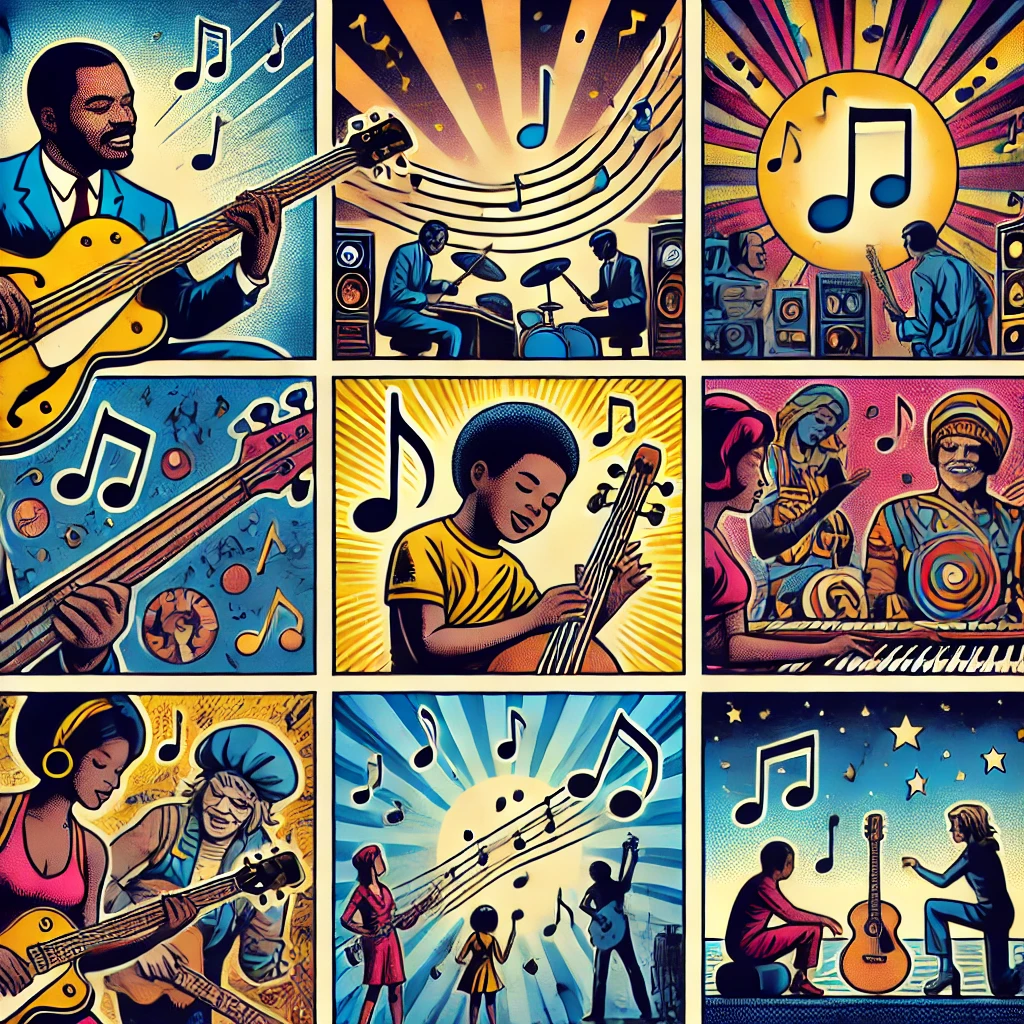Music as a Language Victor Wooten
In Music as a Language Wooten makes the case for learning music in the same way as we learned our first language, calling for a more natural, less academic approach. He makes the point that, as babies, we weren’t taught our first language …
Victor Wooten, a highly acclaimed bassist, composer, and educator, is known for his innovative approach to music and his deep understanding of its language-like qualities. In his teachings and writings, Wooten often emphasizes the idea of music as a language, drawing parallels between the two and highlighting the ways in which musicians can learn to communicate and express themselves more effectively through music.
Here are some key insights from Victor Wooten on the concept of music as a language:
1. Communication and Expression: Wooten views music as a powerful means of communication and expression, akin to spoken language. He believes that just as language allows us to convey thoughts, emotions, and ideas, music enables musicians to communicate and express themselves in profound ways, transcending linguistic barriers.
2. Vocabulary and Grammar: Similar to spoken language, music has its own vocabulary (e.g., notes, chords, scales) and grammar (e.g., rhythm, harmony, melody). Wooten encourages musicians to develop fluency in these musical elements, honing their skills through practice, study, and improvisation.
3. Listening and Dialogue: Wooten emphasizes the importance of active listening and musical dialogue in musical communication. He encourages musicians to listen deeply to each other, respond intuitively to musical cues, and engage in meaningful musical conversations that foster connection and creativity.
4. Creativity and Individuality: Wooten celebrates the diversity of musical voices and encourages musicians to embrace their individuality and creativity. He believes that every musician has a unique musical perspective to share and that true mastery of music involves cultivating authenticity and originality in one’s playing.
5. Education and Mentorship: As an educator, Wooten is passionate about empowering aspiring musicians to unlock their musical potential and develop their musical language skills. He advocates for a holistic approach to music education that encompasses not only technical proficiency but also creativity, improvisation, and self-expression.
Overall, Victor Wooten’s perspective on music as a language underscores the transformative power of music as a universal form of communication and self-expression. By recognizing and harnessing the language-like qualities of music, musicians can deepen their connection to the art form, expand their musical horizons, and forge meaningful connections with audiences and fellow musicians alike.
